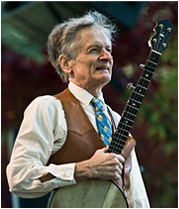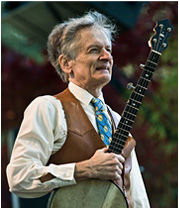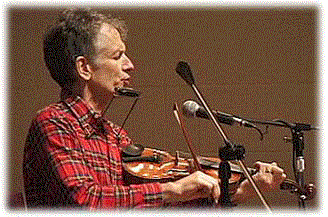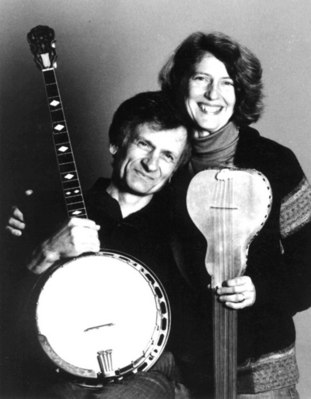Seeger was a highly respected performer and collector of traditional music and a major force in giving rural Southern musicians a wider audience. He became a spark plug for the revival of interest in American music traditions in the second half of the 20th century.
He was born into a prominent musical family. His half-brother Pete and sister Peggy are renowned musicians and social activists. His father, Charles, was a folklorist. His mother, Ruth Crawford Seeger, was a music scholar, teacher and classical composer.
Mike Seeger quickly came to love traditional music, and began playing in earnest in his late teens. He developed major talent on banjo, guitar, fiddle, autoharp dulcimer, harmonica and several other instruments large and small. He sought out, learned from and recorded traditional musicians, starting in the Washington, D.C., area where he was raised, and ultimately traveling all over the South to find artists long forgotten or undiscovered.
He co-founded the New Lost City Ramblers with John Cohen and Tom Paley in the late 1950s. This trailblazing three-person string band combined the urban roots of its own members with a deep regard for music of the countryside and small towns.
The Ramblers mined old 78 RPM recordings and visited with senior players, bringing largely forgotten music to life with new yet traditional arrangements altogether more gutsy and respectful than those of most of the pop-folk groups active at the time.
The Ramblers also pioneered the practice of bringing many older rural musicians onstage with them for collaborative concerts, bridging gaps of culture and time for new audiences. Tracy Schwarz replaced Paley and continued with the group until its final concert, minus Seeger, in West Virginia on July 30, 2009.
In addition to his work with the Ramblers, Seeger pursued an active solo performing career around the world. He collected and documented music and dance, appeared at countless educational events and produced teaching videos on numerous instruments and styles.
Mike Seeger produced dozens of albums solo, with the New Lost City Ramblers, and with a broad array of other musicians. One album, titled Close to Home, features performances culled from his massive collection of field recordings.
As the end of his life drew near, Seeger was also working on a video documentary project focusing on current Southern banjo players.
Seeger was a highly respected performer and collector of traditional music and a major force in giving rural Southern musicians a wider audience. He became a spark plug for the revival of interest in American music traditions in the second half of the 20th century.
He was born into a prominent musical family. His half-brother Pete and sister Peggy are renowned musicians and social activists. His father, Charles, was a folklorist. His mother, Ruth Crawford Seeger, was a music scholar, teacher and classical composer.
Mike Seeger quickly came to love traditional music, and began playing in earnest in his late teens. He developed major talent on banjo, guitar, fiddle, autoharp dulcimer, harmonica and several other instruments large and small. He sought out, learned from and recorded traditional musicians, starting in the Washington, D.C., area where he was raised, and ultimately traveling all over the South to find artists long forgotten or undiscovered.
He co-founded the New Lost City Ramblers with John Cohen and Tom Paley in the late 1950s. This trailblazing three-person string band combined the urban roots of its own members with a deep regard for music of the countryside and small towns.
The Ramblers mined old 78 RPM recordings and visited with senior players, bringing largely forgotten music to life with new yet traditional arrangements altogether more gutsy and respectful than those of most of the pop-folk groups active at the time.
The Ramblers also pioneered the practice of bringing many older rural musicians onstage with them for collaborative concerts, bridging gaps of culture and time for new audiences. Tracy Schwarz replaced Paley and continued with the group until its final concert, minus Seeger, in West Virginia on July 30, 2009.
In addition to his work with the Ramblers, Seeger pursued an active solo performing career around the world. He collected and documented music and dance, appeared at countless educational events and produced teaching videos on numerous instruments and styles.
Mike Seeger produced dozens of albums solo, with the New Lost City Ramblers, and with a broad array of other musicians. One album, titled Close to Home, features performances culled from his massive collection of field recordings.
As the end of his life drew near, Seeger was also working on a video documentary project focusing on current Southern banjo players.








